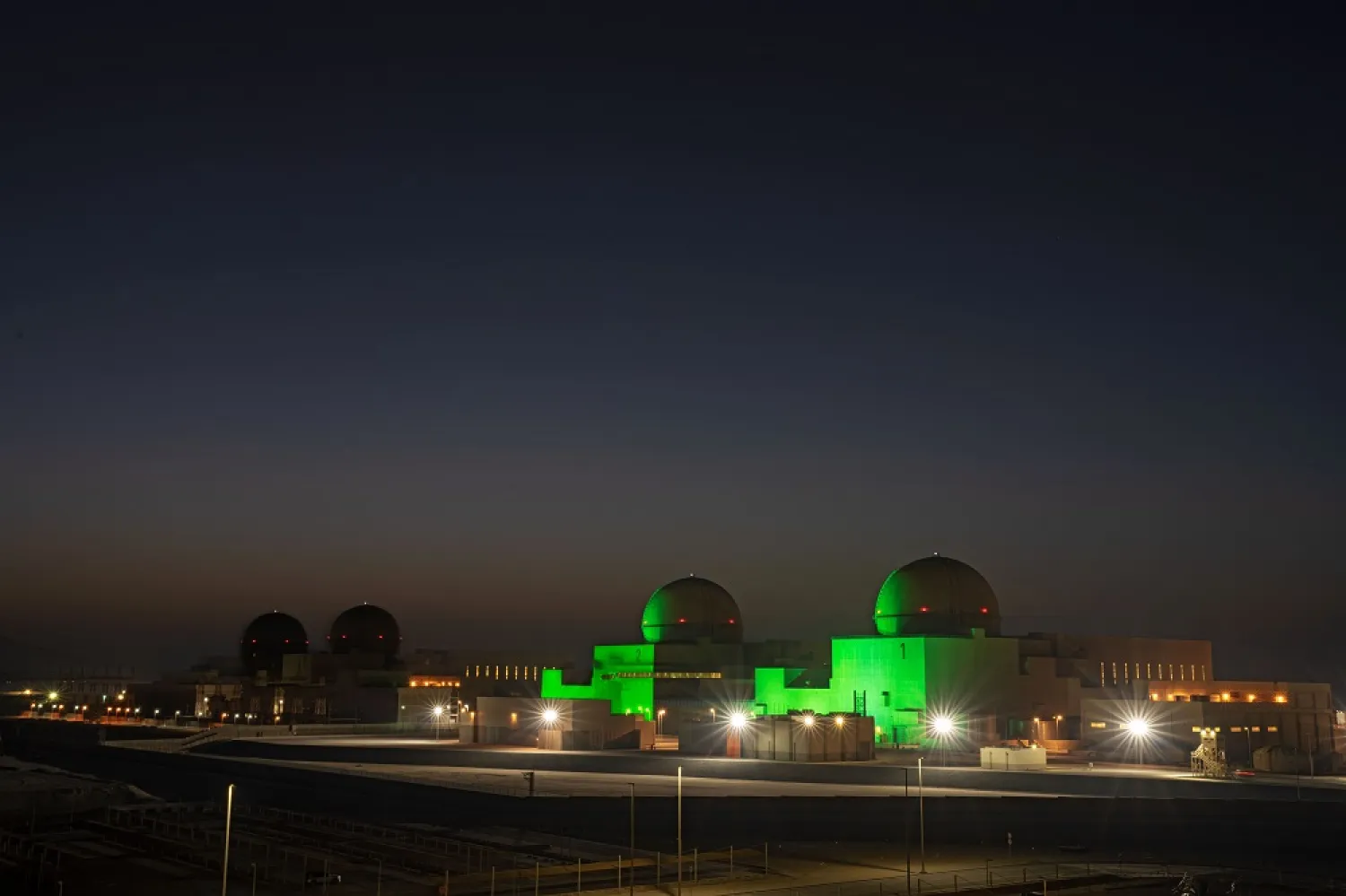The Emirates Nuclear Energy Corporation (ENEC) announced on Thursday the start of commercial operations of Unit 2 at the Barakah Nuclear Energy Plant, reported the United Arab Emirates' state news agency (WAM).
Unit 2 adds 1,400 megawatts of zero-carbon emission electricity to the national grid, bringing the total produced by Units 1 and 2 to 2,800 megawatts and further securing energy supply and advancing the UAE's sustainability goals.
This new milestone takes ENEC and its subsidiaries to the halfway mark of delivering on its commitment to supply up a quarter of the country's electricity needs, reliably powering the economy by generating clean electricity 24/7 and significantly contributing to the UAE's Net-Zero by 2050 initiative.
With Unit 2 commercially operational, the Barakah Plant, the first multi-unit operating plant in the Arab world, is leading the largest decarbonization of any industry in the region, delivering thousands of megawatts of carbon-free electricity every single day.
Mohamed Ibrahim Al Hammadi, Managing Director and CEO of ENEC, said: "The Barakah Nuclear Energy Plant is a sustainable powerhouse for the UAE. The start of commercial operations at Unit 2 doubles the Barakah Plant's generation of emissions-free electricity, enabling rapid decarbonization of the UAE's power sector in pursuit of Net Zero 2050."
"With Unit 2 reaching commercial operations less than 12 months after Unit 1, we have demonstrated the UAE's megaproject capabilities, building institutional knowledge to enhance delivery to the highest standards and offer a successful case study for other nations looking to diversify their energy portfolio using a proven and sustainable technology."
While increasingly supporting the country's strategy to diversify energy sources in a shift towards cleaner energy, ENEC is also spearheading the UAE Net-Zero by 2050 Strategic Initiative by preventing millions of tons of carbon emissions and helping to tackle climate change and deliver climate solutions.
When its four units are commercially operating, the Barakah Plant will produce up to 25 percent of the UAE's electricity needs and prevent about 22.4 million tons of carbon emissions annually, equivalent to the emissions of 4.8 million cars. The Barakah Plant significantly boosts the UAE's energy security through domestic clean electricity generation.
By 2025, the plant will generate more than 85 percent of Abu Dhabi's clean electricity, making it the biggest contributor to reducing Abu Dhabi's carbon emissions by 50 percent by the middle of the decade.
Nasser Al Nasseri, the CEO of Barakah One Company, ENEC's subsidiary in charge of representing the financial and commercial interests of the Barakah Plant project, said: "Today is an integral day for the delivery of the Barakah Nuclear Energy Plant project with the commercial operations of Unit 2, we are now selling double the volume of electricity to the Emirates Water and Electricity Company (EWEC) per the Power Purchase Agreement signed in 2016."
"We are committed to efficient and reliable power generation to ensure homes, businesses and industry across the UAE have continuous access to clean baseload electricity and will do so for the coming 60 years ahead. The sale of electricity further supports Abu Dhabi's Clean Energy Certification program, allowing more businesses to demonstrate the sustainability credentials and stimulating the growth of our Net Zero economy."
The commercial operations of Unit 2 were completed with the continuous support of EWEC and the Abu Dhabi Transmission and Dispatch Company (TRANSCO). EWEC and TRANSCO's support in maintaining a world-class electric grid infrastructure is critical for the reliable distribution of electricity from the Barakah Plant. They ensured that the clean electricity generated at Barakah is delivered to consumers across the UAE safely and sustainably.
Ali Al Hammadi, CEO of Nawah Energy Company, ENEC's subsidiary mandated to operate and maintain the Barakah Plant, commented: "The start of Unit 2 commercial operations comes as a result of the world-class operating experience of our teams made up of UAE nationals and international experts. Over the years, they have the skills and expertise in the nuclear industry to safely provide constant, reliable and sustainable clean electricity around the clock from two identical units operating in parallel."
"We are committed to operating the plant in line with the UAE's robust regulations and international best practice on our ongoing journey to operating excellence."
Unit 2 joins Unit 1, which kicked off commercial operation in April 2021. Units 3 and 4 are in the final stages of commissioning, with Unit 3 construction already complete and now undergoing operational readiness preparations and Unit 4 is in the final stages of construction completion. The development of the Barakah Plant is now more than 96 percent complete, having steadily progressed since construction started in 2012.
The Barakah Nuclear Energy Plant, located in the Al Dhafra Region of the Emirate of Abu Dhabi, is one of the largest nuclear energy plants in the world, with four APR-1400 units. While delivering on its clean energy vision through the peaceful nuclear program, ENEC also provides talented UAE youth with the skills, capabilities and experience necessary to become the future leaders of the nation's growing peaceful nuclear energy sector.









